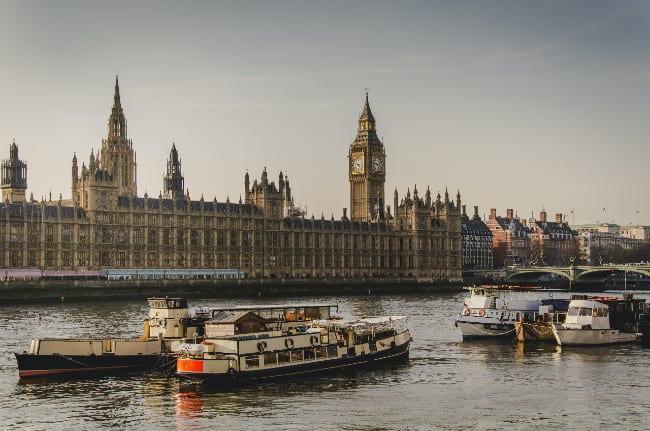Written by Alexia MacDonald, PolicyBristol Associate Social Sciences and Law, Arts and Humanities.
Have you ever wondered who else might be interested in your research, other than your academic colleagues and students?!
The Register of All Party Parliamentary Groups (APPGs) is an extensive list of groups consisting of parliamentarians who share interests, knowledge and expertise. APPGs cover a diverse range of subjects from artificial intelligence to wrestling, and from historic vehicles to youth employment – so there is probably at least one that overlaps with your research area.

More influential than they seem
APPGs are run by and for Members of both the Commons and the Lords, regardless of party affiliation. They should not be confused with Select Committees; they are informal groups with no official status in Parliament. However, they are more influential than they might sound: the reports and recommendations published by APPGs following their investigations often influence government policy.
Thangam Debbonaire, MP for Bristol West, is an active member of numerous APPGs, having chaired several of them before being appointed Shadow Secretary of State for Housing and Homelessness.
One of these is the Breast Cancer APPG, which exists to raise the profile of breast cancer issues within parliament. In March 2018, Thangam launched the group’s report ‘A Mixed Picture: An Inquiry into Geographical Inequalities and Breast Cancer’, which uncovered the true extent of a ‘postcode lottery’ in breast cancer diagnosis and care across England.
Thangam also chaired the APPG for Refugees. In July 2016 the group launched an inquiry into the experiences of new refugees in the UK: the ‘Refugees Welcome’ report outlines how the government acted on one of the recommendations of the report to ensure refugees have a right to a bank account.
Engaging with APPGs to influence policy
As a busy academic, you may be wondering why you should take time to engage with APPGs. Yet working with a relevant APPG led to Professor Mhairi Gibson (Department of Anthropology and Archaeology) furthering her case to change international development policy and improve reproductive health interventions in Ethiopia, as well as providing valuable material for a REF case study.

PolicyBristol worked with Mhairi to produce a policy briefing which we then sent to a member of the APPG on Population, Development and Reproductive Health. Mhairi was then invited to speak at their next meeting. The meeting was attended by the Shadow Foreign Minister, and member of the Foreign Affairs Select Committee, six peers representing various other APPGs, as well as representatives from Oxfam and other NGO advocacy groups.
After her presentation, Mhairi handed out some blank postcards with the following question “How might you put what you learned today into policy or practice?” Responses included:
“It will help inform discussions I have on women’s health issues in my [government] role” and “I will be asking my colleagues who specialise in water and sanitation programming how wide-ranging their monitoring and evaluation is and whether there are blind spots.”
Others explained that it would help them highlight how “meeting unmet need [for family planning] is vital with far-reaching and beneficial consequences”, and to argue for community-based, multisectoral rather single-focussed intervention in UK funded aid projects.
Top tips from Mhairi
- Take some blank postcards and ask attendees to scribble down how they might make use of what they have heard in your presentation/ leave their contact details.
- Take along a colleague who can gather names/take notes. It can be hard to collect information (e.g. for evidencing impact) while also fielding questions. Even in the era of live webinars, having someone to record details is vital.
- Take a copy of your policy briefing (or a very short summary of your work) to hand out – they always get snapped up! (Or in the virtual world, have a version that is reader-friendly and ready to send during or after the meeting).
Expanding your networks
Many APPGs have external organisations acting as Secretariat, who might host events or carry out inquiries on their behalf, often setting the agenda for APPG meetings. The Secretariat can be a good first port of call, as Dr Annie Herbert from UoB’s School of Population Health Sciences found out.
‘I was interested in Teenage and Young Adult Cancers, so found out who the Secretariat was for the related APPG [Clic Sargent] and asked to be added to their mailing list. When one of their emails said that they were having a session about the upcoming year focussing on ‘early diagnosis’ (exactly one of my areas of research), I contacted a collaborator and together we asked if we could attend the meeting. They replied very positively and even invited us to present one of our papers at the meeting at Westminster in London.”
Annie has also been in touch with the Association for Young People’s Health (Secretariat for the Young People’s Health APPG) and had a recent call with their research lead: “She listened to my fellowship idea and told me which bits she thought would and wouldn’t be of interest to stakeholders at the moment. She’s since sent me some links to papers and seminars she thinks would be relevant, so has become a good contact!”
Top tips from Annie
- Be cheeky! An email doesn’t hurt! Often people will respond positively and sometimes they can put you in touch with others who are relevant to your work.
- Don’t despair if no-one replies, or there’s nothing relevant to your work that comes up initially – I was on an APPG mailing list for about two years before the relevant theme came up, but when it did, I was ready to jump and it paid off!
Submitting written evidence to APPG inquiries
APPGs often run inquiries; for example, the APPG on British Muslims ran one on a Working Definition of Islamophobia, which Professor Tariq Modood responded to.
Another example comes from Dr Lucy Biddle, Senior Lecturer in Medical Sociology, who submitted written evidence to the APPG on Social Media’s inquiry into managing the impact of social media on young people’s mental health and wellbeing. Lucy’s research had revealed that browsing social media to find support was common among young people but was high risk, as details of suicide methods online could lead to further deaths.
She was subsequently invited to give oral evidence. PolicyBristol helped Lucy prepare for the session by offering a ‘mock evidence session’, asking her likely questions and offering advice and information. Her research was referenced in the report which made several recommendations to Government. Lucy still follows the APPG and continues to work in the area of online harms, building on collaborations with the Samaritans.
Top tips from Lucy:
- Take PolicyBristol up on the offer of a mock evidence giving session. This gave me a sense of what to expect on the day and an opportunity to ‘rehearse’ ways of responding to questions and getting evidence across. It gave me extra things to think about that I’d not necessarily realised I could encounter, and gave a sense of how questions could be asked. As a result, I felt much more confident on the day.
- Read up on the people giving evidence alongside you – if you know who they are. This helped me think about what I might be asked and likely themes for the session. It also gave some added familiarity to the proceedings when I arrived.
An ongoing inquiry… and an opportunity to have your say!
There is currently an inquiry into APPGs themselves. The Committee on Standards is inviting written evidence from interested individuals including academics, on the rules for and regulation of APPGs.
You can view the call and submit written evidence to the Committee here. The deadline for written evidence is Friday 20 November.
Want to know more?
The Register is the definitive list of all APPGs and is updated regularly (approximately every six weeks). You can search by country interest or subject interest.
Further information about APPGs can be found on the APPG Page of the parliamentary website. You can also contact the Assistant Registrar at mailto:groupsregister@parliament.uk
Or for advice on engaging with policymakers or practitioners, please contact the PolicyBristol team.
